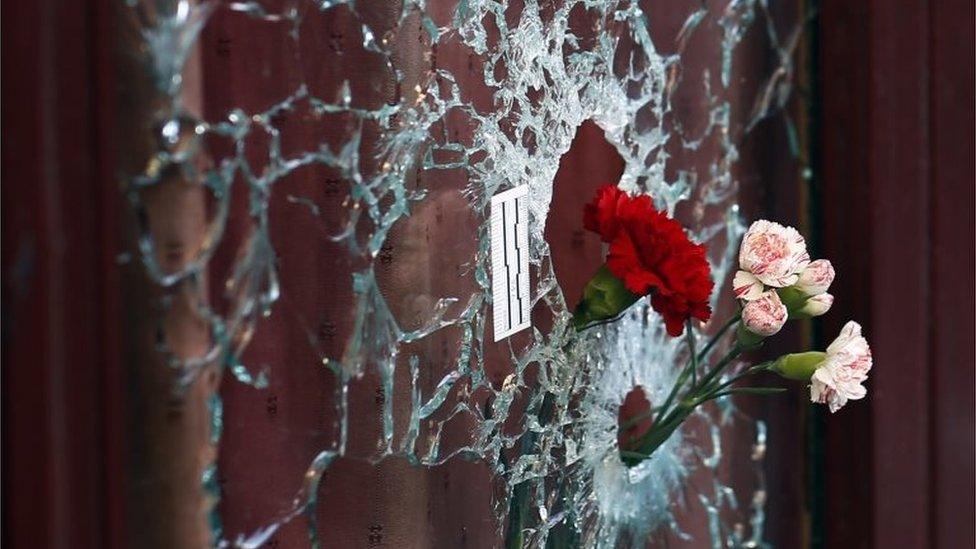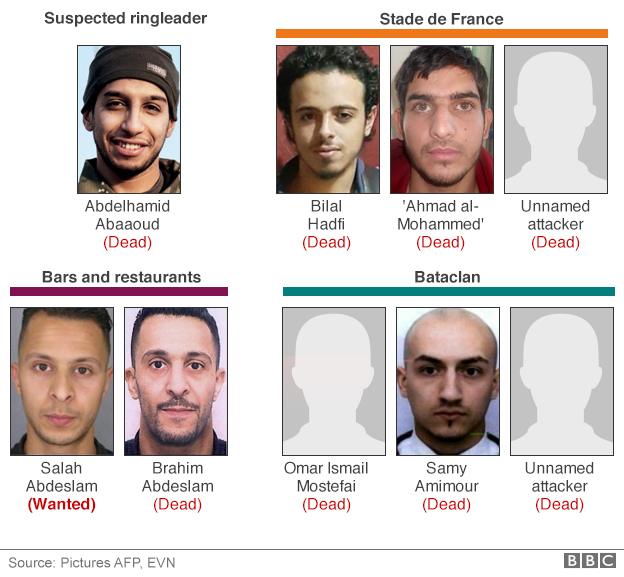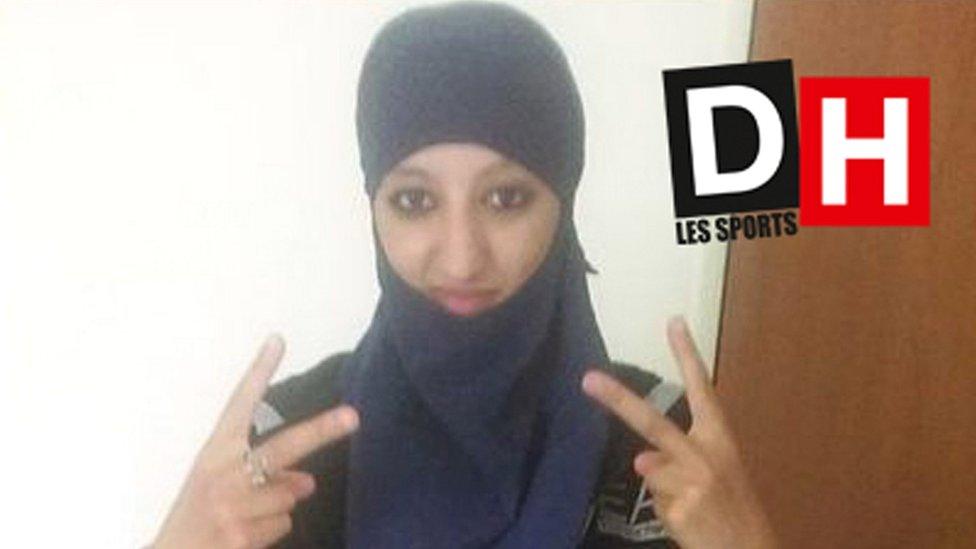Paris attacks: UN backs 'all necessary measures' against IS
- Published

France says 130 people died in last week's attacks on a number of sites - including this cafe - in Paris
The UN Security Council has unanimously adopted a resolution to "redouble" action against Islamic State, following last week's deadly attacks in Paris.
The French-drafted document urges UN members to "take all necessary measures" in the fight against IS.
IS said it carried out the Paris attacks, in which 130 people died.
It also claimed deadly bombings in Lebanon this month, while an IS-linked group said it downed a Russian passenger plane in October.
The UN resolution 2249 also condemns recent attacks in Sousse, Tunisia, and Ankara, Turkey.

More on the Paris attacks

It came as the Belgian authorities raised the terror alert to its highest level, external in the capital, Brussels, warning of an "imminent threat".
The city's metro system and other underground train lines have been closed until at least Sunday, and the public has been warned to avoid crowds, including shopping centres and concerts.
Belgium, and especially Brussels, have been at the centre of investigations into the militants behind the Paris attacks.
One of those being sought, Salah Abdeslam, is believed to have gone back to Belgium.
The Belgian authorities also announced that a suspect had been charged with involvement in the attacks, bringing the number of people charged there to three.
On Friday evening, large crowds converged at the scenes of the attacks across the French capital at 21:20 (20:20 GMT) to hold vigils at the time the attacks started a week ago.

The UN Security Council called on member states to "eradicate the safe haven" IS and other militant groups had established over parts of Iraq and Syria.
The document also stresses that nations should "redouble and co-ordinate their efforts to prevent and suppress terrorist attacks".
However, it does not invoke the UN's Chapter VII, external, which gives specific legal authorisation for the use of force.
France and Russia have argued that military action is already justifiable because of the right of countries to self-defence.

Hasna Ait Boulahcen had been thought to have blown herself up during the raid
Earlier, French officials said the cousin of the presumed ringleader of the 13 November attacks in Paris did not blow herself up in Wednesday's police raid in Saint-Denis as previously thought.
In an exclusive interview with the BBC, a member of the police assault team involved in the raid said Hasna Ait Boulahcen, 26, was "trying to say she was not linked to the terrorists, that she had nothing to do with them and wanted to surrender".
But he said that due to prior intelligence, "we knew that she was trying to manipulate us".
Officials said the suicide bomber was a man, who - alongside with alleged ringleader Abdelhamid Abaaoud - was also killed.
"Female terrorist pretended to try to give up", says 'Hugo', head of the elite police assault group which carried out the raid in Saint Denis
In a separate development, French prosecutors said that a second suicide bomber from the Stade de France attack passed through Greece on his way to France.
The prosecutors had previously said one of the other attackers had come on the same route, via the Greek island of Leros. The men may have been posing as Syrian refugees.
Khemissa: "I don't think [Hasna Ait Boulahcen] had the intention to be a suicide bomber. She was influenced. She was vulnerable."
Hundreds of people were wounded in the near-simultaneous attacks on Paris bars and restaurants, a concert hall and sports stadium.
Islamic State (IS) said it was behind the attacks - the worst in Europe since the 2004 Madrid bombings.

What is Islamic State?
IS is a notoriously violent Islamist group which controls large parts of Syria and Iraq. It has declared its territory a caliphate - a state governed in accordance with Islamic law - under its leader Abu Bakr al-Baghdadi.
What does it want?
IS demands allegiance from all Muslims, rejects national borders and seeks to expand its territory. It follows its own extreme version of Sunni Islam and regards non-believers as deserving of death.
How strong is IS?
IS projects a powerful image, partly through propaganda and sheer brutality, and is the world's richest insurgent group. It has about 30,000 fighters but is facing daily bombing by a US-led multi-national coalition, which has vowed to destroy it.